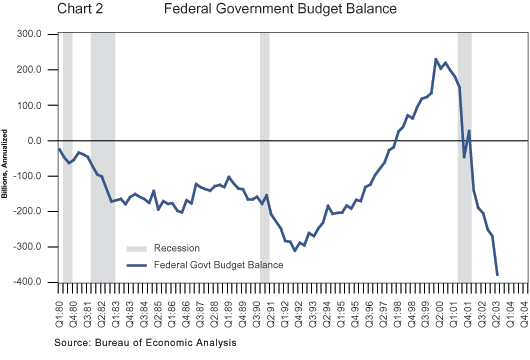The Unwinding of America's Debt Obligations Begins
It's easy to look like a fool when you're a bear in a bullish rally. Later, you'll look like a genius when still have your capital. But it IS hard looking at a market that's going up when you know that it defies reality, common sense, and more importantly, economic sense. Two things to keep in mind: first, in a secular bear market like the one we're in, the rallies can not only be large, they can last longer than you think. The rallies, after all, are now powered by positive business conditions or earnings growth, but emotion, hope, and fear that the good times are over. And when investors are making decisions based on false confidence instead of real facts, getting in their way can be a mistake, sort of like getting in the way of a sumo wrestler as the dessert cart passes by. But take a look at the chart below. And while you can't take comfort in it, it ought to be a cold shower...of sorts. Stock market rallies do not start with stocks being fully priced for economic conditions that don't exist. Economic recoveries do not rise from adding $5 in debt for every $1 in GDP growth. And healthy job markets are not characterized by a shrinking work force becoming more productive while the unemployment rolls get larger. And of course...the mother of all cold showers...governments do not indefinitely spend money they do not have without bankrupting themselves. And a bankrupt borrower, even one as big and powerful as the United States, is not a good credit risk. Of course, the U.S. isn't exactly bankrupt. Neither is it doing the things that make its bonds appealing to prospective lenders (the world's savers). For instance, increasing the supply of a commodity (dollars) when the demand for it is falling is not a good strategy. Nor is spending more money than you're already taking in, and adding new entitlement programs just for good measure. These actions may not literally bankrupt you right away. But these promises to pay--to bond buyers or your own voters--must be made by going further and further out into the future and making a claim on future revenues. And past a certain point, lenders begin to get leery of your ability to guarantee that your future revenues will be worth then what they're worth now---especially if you're stated goal is to inflate the daylights out of your currency. "Hey, China, lend me a few hundred million today. I promise to pay back with a currency that's declining in purchasing power." Bill Gross, the excellent bond analyst from PIMCO, looks at it in more sober terms. Here's what he finds. ...new evidence that our government's deficit...is running at $450 billion+, with few prospects for improvement (a new prescription drug bill and Alternative Minimum tax adjustment will add nearly 100 billion annually to the total and Iraq perhaps $50 billion more). President Bush and his economic team claim that the $450 billion is well spent, that it is an investment in America, and after all, "we owe it to ourselves." Such nonsense belongs in Mad magazine. The $450 billion is paying for overconsumption, for Hummers in L.A. and Hummvees in IRAQ and we increasingly owe it to foreign creditors. It is plain for all to see that we are living beyond our ability to pay... ... the spending/savings discipline necessary to right {the} fiscal ship has to come from the outside....Hummers and Hummvees are way too cool to say no to. So it's the creditors that say no. And their discipline has already started. Bond market vigilantes, (not so vigilant it seems prior to June of '03) have suddenly recoiled in horror at the U.S. budget deficit and the failure of the Fed to guarantee its funding at exorbitantly low interest rates. In turn, foreign creditors for more than a year have been liquidating dollars in favor of other country's currencies with current account/trade balances closer to neutral, and budget disciplines resembling that of an adult as opposed to a neurotic teenager with a credit card. Gross is dead on. "Recoiled in horror" is the reaction that takes the rug out from under the stock market. And it's why commerical speculators are bearish on the S&P. The only question now is who's emotional reaction is stronger: foreign lenders terrified about taking on U.S. debt obligations...or U.S. investors intent on ignoring the train wreck headed their way. Get gold. FEDERAL DEFICIT GOES OFF THE DEEP END


0 Comments:
Post a Comment
<< Home